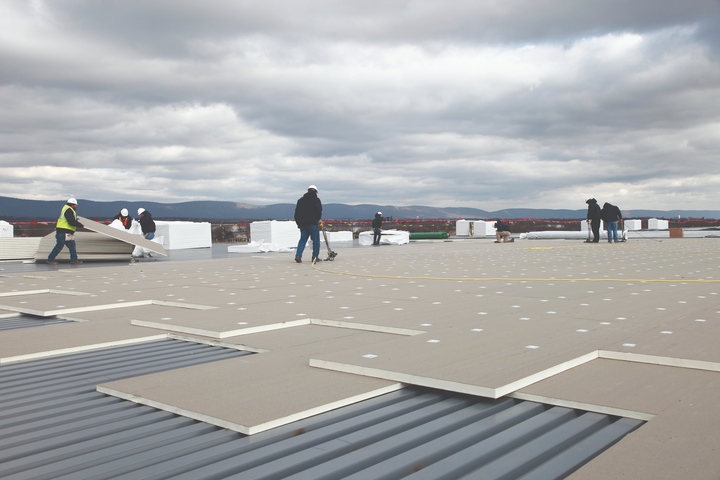COVESTRO
Collaboration with Carlisle on bio-circular building materials / German partner to contribute MDI
By Plasteurope.com correspondent
German engineering plastics producer Covestro (Leverkusen; www.covestro.com) and Carlisle Construction Materials (Charlotte, North Carolina, USA; www.carlisle.com) are teaming up on a new project to develop bio-circular materials for the building sector.
German engineering plastics producer Covestro (Leverkusen; www.covestro.com) and Carlisle Construction Materials (Charlotte, North Carolina, USA; www.carlisle.com) are teaming up on a new project to develop bio-circular materials for the building sector.
 MDI with attributed bio-circular raw materials to be used by Carlisle in their rigid foam insulation panels (Photo: Covestro) |
Under the terms of the collaboration, Covestro is to supply its US partner with ISCC Plus-certified mass balanced bio-circular methylene diphenyl diisocyanate (MDI) that it says has a carbon footprint up to 99% lower than fossil-based MDI and a CO2 reduction potential of 2.4 kg per kg of MDI produced.
Carlisle plans to deploy the MDI to manufacture its high-performance polyiso insulation and engineered metal roofing and panel systems with lower embodied carbon. The company’s bio-based rigid foam insulation is claimed to include 5% bio-circular content.
The two companies have jointly developed innovation-focused construction materials for several decades, and according to Covestro, are currently working to develop further next-generation sustainable building products.
Related: Covestro to produce at new plant by 2027
Hermann-Josef Doerholt, global head of Covestro’s Performance Materials business segment, said his firm’s vision to become fully circular requires R&D advancements that directly support the Scope 3 goals of customers such as Carlisle. The company’s Mondur CQ 489 MS isocyanate is part of what it calls a “broad family” of circular products with an attribution of at least 25% alternative raw materials derived from biomass or recycled plastics.
Carlisle, which regards itself as a global leader in building envelope solutions, is aiming to achieve net zero carbon emissions by 2050. Using Covestro’s MDI to produce its bio-based rigid foam insulation, which contains 5% bio-circular content, is to be a step in this direction.
By its own account, the Leverkusen-based resin maker has ISCC Plus-certified facilities in every major global market, including its manufacturing facility in Baytown, Texas. At its US facilities, Covestro aims to be operationally climate neutral (Scope 1 and Scope 2) by 2035.
17.09.2024 Plasteurope.com [256149-0]
Published on 17.09.2024
